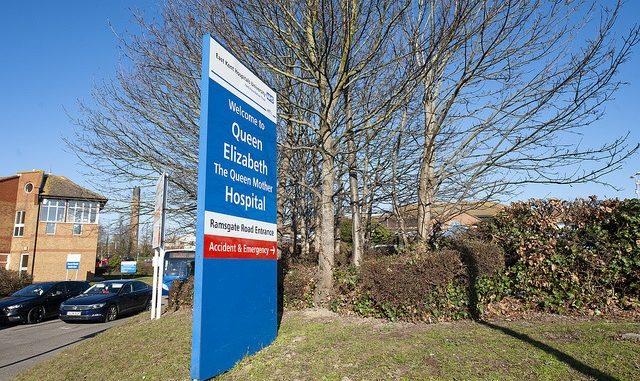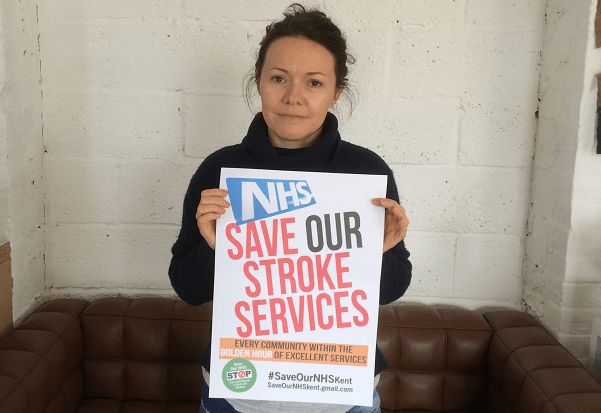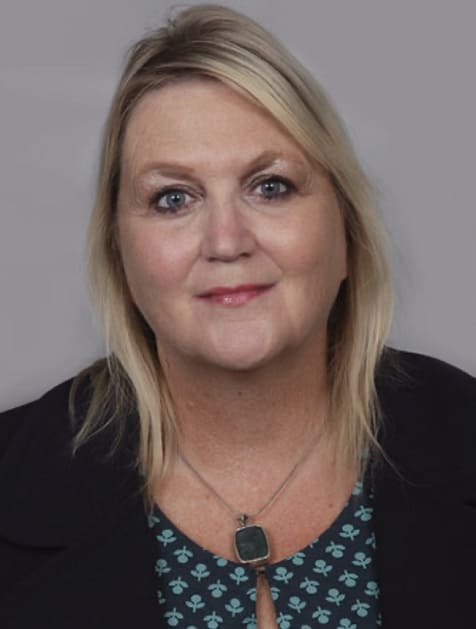
The Care Quality Commission (CQC) has published reports on maternity services and services for children and young people at hospitals run by East Kent Hospitals University NHS Foundation Trust including QEQM in Margate, where concerns are raised over a shortage of maternity staff.
The report says that during the unannounced inspections in July there were not enough midwifery staff and maternity support workers to keep women and babies safe. Inspectors said some staff were feeling exhausted, stressed and anxious, raising concerns that mistakes can easily be made when people’s judgement is impaired by fatigue.
Working 20 hour days
Amanda Williams, CQC’s head of hospital inspection, said “At the time of the inspection, managers weren’t doing enough to effectively tackle this shortfall and were offering staff financial incentives to work above their contracted hours, and asking community midwives to take on additional work in the acute units, which meant they were sometimes working 20-hour days, with very little time for a break.”
Both focused inspections were carried out after receiving information of concern about the safety of quality of the services, as well as to follow up on the progress of previous improvements the trust had been told to make.
The inspection of the maternity units at the Queen Elizabeth The Queen Mother Hospital, William Harvey Hospital, and the community midwifery services at Kent and Canterbury Hospital and Buckland Hospital in July, looked at how safe, effective and well-led maternity services were. As this was a focused inspection, no ratings were produced and the previous overall rating of requires improvement for maternity remains in place.
Inspectors also looked at how safe and well-led services for children and young people at the Queen Elizabeth The Queen Mother Hospital and William Harvey Hospital were. Following the inspection, the overall rating improved from inadequate to requires improvement. Safe and well-led moved from inadequate to good. As this was a focused inspection, no ratings were produced for caring, effective and responsive, and the previous ratings (good for caring, requires improvement for effective and responsive) remain in place.
Action plan
Amanda Williams said: “We were also concerned to learn that staff did not always take the time to report all incidents around staffing and capacity issues. Staff felt that continually reporting short staffing had not improved the situation.
“After we raised concerns about unsafe staffing levels, the trust responded swiftly and produced an action plan focused on driving improvements, and asked the newly appointed interim director of midwifery to review the challenges the service faced.
“The action plan included reopening the midwifery led unit (which was closed due to staffing issues), and suspending the homebirth service so that homebirth midwives could be redeployed to the maternity unit at the hospital. A number of new midwives were also due to start work in September.
“On a more positive note, during our inspection, we witnessed an emergency delivery where staff and embedded processes worked well together, resulting in the safe delivery of a baby at the Queen Elizabeth The Queen Mother Hospital.
“In the services for children and young people, I am pleased to report significant improvements since our last visit and it was clear that leaders and staff were committed to continually learning and improving services.
“For example, parents told us they valued a service where nurses sent pictures or videos of their babies in the neonatal intensive care unit when they weren’t able to see them. The service had also started a needle phobia group to support diabetic children and had introduced a training module, partly delivered by people with lived experience, to help staff understand the needs of children with mental health conditions and learning disabilities.
“The trust knows what further improvements must be made across both of these services, and we will return to check on their progress.”
Midwifery investment
East Kent Hospitals Trust says it is investing £1.6 million to improve midwifery staffing levels following a thorough staffing review.
The Trust Board approved the £1.6m investment at its Board meeting on 30 September.
Sarah Shingler, Chief Nursing Officer, said: “We are pleased that the CQC has recognised the hard work and commitment of staff and the significant improvements that they have made for children, young people and their families.
“We continue to work hard to support our midwives’ well-being and help them provide a safe, high-quality service for women and babies. This includes a £1.6m investment to fund an additional 38 additional midwives with 26 already in post.”
The Trust says that like many maternity services around the country, the service has struggled this year with staff shortages compounded by staff absences associated with Covid-19 and high demand.
The Trust undertook a comprehensive staffing review and has temporarily reduced the number of midwifery services it offers, suspending the home birth service until staffing is in a more sustainable position.
Extra temporary, qualified staff have been brought in while the Trust recruits permanent staff, some with specific responsibility for answering the telephone to women who need advice and support. Twenty-six additional midwives have been recruited so far.
Sarah Shingler said: “We know there is still more we can do to make sure we always provide the best possible care for all our young patients and their families, and we will continue to build on the improvements we have made to date.

Carly Jeffrey of Save Our NHS in Kent campaign group said “Yet again East Kent Hospitals have been proven to be letting down staff and patients in a manner so extreme that people are not safe from ‘avoidable harm’. We have seen the human cost of this too many times. It is a scandal that devastates families, and what is worrying is that we may not even know the true scale of avoidable deaths and avoidable harm in our local hospitals.
“This latest report shows that staff have given up on reporting safety issues because nothing is done when they do. An earlier report (RCOG) showed that staff in Ashford and Margate hospitals felt afraid to report problems because confidentiality was not maintained and repercussions were likely. There appears to be an ongoing failure at management level to listen to staff.
“Another burning issue which has been highlighted over and over again in 2018 and 2019 by SONIK is that staff shortages in East Kent Hospitals (particularly QEQM) could have been addressed by introducing incentives to new staff (such as a pay uplift, subsidised childcare or help with housing costs). To put it bluntly, we were sick and tired of hearing the excuse that services had to be cut because it was hard to attract medical staff to Thanet.
“The trust’s supposed special recruitment efforts for Thanet were almost non-existent, and monetary incentives were not offered, despite monetary incentives being offered by the NHS in numerous parts of the UK. Staff looking to move to Kent might be tempted by £5,000 worth of help with housing costs if they moved to Maidstone, for example. GPs in selected areas were offered a £20,000 ‘golden hello’. Why were Thanet’s shortages never addressed like this?
“At SONIK we have long feared that there has been a deliberately apathetic approach to recruitment drives in this area because the wider plan is to move many of our NHS services to Canterbury or Ashford. For this reason, we suspect genuine attempts to improve staff levels have been suppressed. We blame the national government for allowing such hazardous shortages to occur at a national level; but we blame the NHS bosses in Kent for exploiting these shortages to provide justification for their programme of NHS cuts.”

County Councillor Karen Constantine said: “The CQC review is seriously concerning. It’s clear to me that staffing issues across a broad range of services in the NHS are at a critical stage. Without proper Government intervention these ‘clinician gaps’, will continue to materialise and inevitably people will fall through those gaps; Suffering, harm and anxiety are predictable. Without sufficient and safe staffing levels we are not going to see the scale of improvements needed.
“The Health Overview and Scrutiny Committee (at KCC) has been dealing with these issues in maternity care over many years. In 2020 we were informed that NHS England and NHS Improvement provided a package of support from the NHS Maternity Support Programme, which included a team of national experts working alongside maternity teams.
“Since then, despite many reviews, new promises, new reports we are no further forward. This has been going on since 2015. We cannot blame staff or managers who are more than doing their best under the most difficult circumstances. I thank them for their hard work.
“That Thanet mothers and babies are not getting a good and safe service is reprehensible.
“The Government need to fix this problem by addressing the workforce problems and recruitment and retention issues in line with the recommendations from the Royal College of Midwives (RCM) and The Royal College of Obstetricians and Gynaecologists (RCOG). We need to pay and support people to train in these vital areas in adequate numbers.
“We also need to ensure that there is a duty on the secretary of state for health and social care to ensure regular, detailed and publicly available health and care workforce assessments take place. These should include modelling of current and future workforce supply and population and patient need. In short someone needs to take accountability and responsibility for planning our vital NHS staffing.
“Without these actions we will still be dealing with these issues for years to come. As the Labour representative on the Kent HOSC I shall continue to raise these matters. And will press for the committee to communicate our concerns with the Government.
“If anyone wants to contact me to discuss their experiences I am always available and will do whatever I can do to assist. [email protected]”
What inspectors found
Leaders did not always operate effective governance processes, so did not always understand and manage the priorities, risks, issues and challenges the service faced. There was a lack of oversight of the community services, including a lack of input at the daily safety huddles.
The service did not have enough maternity staff with the right qualifications, skills, training and experience to keep women safe from avoidable harm and to provide the right care and treatment.
When staffing levels were felt to be unsafe, women were sometimes transferred to other hospitals during labour which made them feel anxious, at a time when anxiety levels are already likely to be very high.
Managers were unable to guarantee that women would receive one-to-one care during labour in line with national guidelines, and staff often had to care for two women at once, increasing the risk of something going wrong during the birth.
Sometimes agency staff were used to cover shifts, which meant that women were cared for by staff they didn’t know, who may not have been familiar with the equipment and policies in place at the hospital.
The trust failed to recognise the impact of the increase in mothers telephoning the service for advice and support during the COVID-19 pandemic. They stopped auditing calls, which could sometimes be very complex, and therefore did not appreciate the impact on staff workload. This meant there were times when non-clinical staff took calls and had to assess women, with limited experience. Midwives said that care had to be rushed because the telephone calls had eaten into time to assess patients who were already onsite.
Community midwifery teams did not visit all new mothers and their babies at home, because they adopted ‘telephone’ assessments. This was not in line with national guidance. This meant there could be delays in identifying mothers and babies who needed to be protected from abuse, or whose condition deteriorated during the post-natal period.
Not all staff had completed training in key skills, including safeguarding training to protect vulnerable adults and children and young people from harm and abuse.
The service did not have an open culture where staff felt confident raising concerns without fear. Not all staff felt respected or valued and rarely felt supported by leaders who were not always visible and approachable. Staff said that there were times when they felt undermined and belittled for raising issues around fatigue and safety.
Staff did not feel that the trust acted on health and wellbeing concerns. They had worked in extraordinary challenging conditions during the pandemic and it was clear that many staff had been deeply affected by what they had experienced. The staff survey confirmed that many staff across the trust felt unwell and stressed, yet they had attended work when they didn’t feel well enough to perform their duties.
Listening clinics for staff were introduced, giving staff reassurance that their concerns would be heard.
Senior leaders recognised the culture needed to improve so that patients, their families and staff could raise concerns without fear.
Staff worked well together for the benefit of women, advised them on how to lead healthier lives, supported them to make decisions about their care, and had access to good information. Staff completed and updated risk assessments for each woman and took action to remove or minimise risks. Staff identified and quickly acted upon women at risk of deterioration. However, a lack of staff posed a risk to the safe assessment and monitoring of all women and babies.
Specialist mental health midwives were involved in a new county-wide pilot for maternal mental health services for families who had experienced birth trauma or loss, in partnership with local clinical psychologists from Kent’s mental health trust.
In the services for children and young people inspectors found:
Leaders ran services well using reliable information systems and supported staff to develop their skills. They understood the challenges the department faced and led improvements. Staff spoke highly of their leadership at all levels and described them as approachable, knowledgeable and supportive.
The service had enough staff to care for children and young people and keep them safe. Staff had training in key skills, understood how to protect children and young people from abuse, and managed safety well.
Staff assessed risks to children and young people, acted on them and kept good care records. The service managed medicines and safety incidents well and learned lessons from them. Infection control risks were well managed.
The service had an open culture where patients, their families and staff could raise concerns without fear. Staff raised concerns, and these were viewed as opportunities to improve the service. Relatives said they were able to raise concerns, and these were addressed swiftly. Staff collected safety information and used it to improve the service.
Staff understood the service’s values, and how to apply them in their work. Staff were clear about their roles and accountabilities and they felt respected, supported and valued. They were focused on the needs of children and young people receiving care and they engaged well with children, young people and the community to plan and manage services.
But at the Queen Elizabeth The Queen Mother Hospital, training compliance for medical staff was worse than the trust target of 85%. Medical staff did not meet the trust target in ten of the 11 modules they were required to complete. At William Harvey Hospital, not all staff had completed their hand hygiene and paediatric hospital life support training.
At William Harvey Hospital, children’s waiting areas in radiology were also used by adults.
Not all incidents were investigated in a timely way and not all staff followed the trust’s policy for pre-operative fasting.
Reports
Maternity services at the Queen Elizabeth The Queen Mother Hospital
Services for children and young people at the Queen Elizabeth The Queen Mother Hospital

